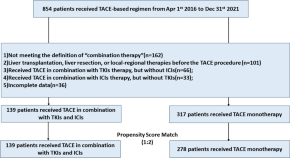
Collection
Cancer Metabolism: A Therapeutic Perspective
- Submission status
- Closed
Keywords: Cancer Metabolism; Metabolic Pathway; Oncogenetic Metabolite; Tumor Microenvironment; Oncogenic Signaling; Cancer Therapy
Editors
-
Qingfei Zheng
Assistant Professor Qingfei Zheng, The Ohio State University, USA He is an Assistant Professor in the Department of Radiation Oncology and Center for Cancer Metabolism at The Ohio State University (OSU). He aspires to tackle chemical and biological problems by simultaneously developing new chemical tools to study complex biological mechanisms and engineering novel biological systems to produce synthetically inaccessible chemicals. Currently, his lab is trying to apply chemical and synthetic biology approaches towards studying cancer metabolism, epigenetics, and tumor microbiome for the development of new personalized cancer therapies.
Articles (10 in this collection)
-

-
High-throughput metabolomics identifies new biomarkers for cervical cancer
Authors (first, second and last of 9)
- Xue Li
- Liyi Zhang
- Fanxin Zeng
- Content type: Research
- Open Access
- Published: 29 March 2024
- Article: 90

-
Transarterial chemoembolization with/without immune checkpoint inhibitors plus tyrosine kinase inhibitors for unresectable hepatocellular carcinoma: a single center, propensity score matching real-world study
Authors (first, second and last of 11)
- Guosheng Yuan
- Wenli Li
- Jinzhang Chen
- Content type: Clinical Trial
- Open Access
- Published: 09 March 2024
- Article: 68

-
Analysis of factors related to osteoporotic vertebral fracture in prostate cancer patients
Authors (first, second and last of 5)
- Shunfa Huang
- Lilan Wu
- Jianjun Zhou
- Content type: Research
- Open Access
- Published: 13 February 2024
- Article: 34

-
GLUD1 inhibits hepatocellular carcinoma progression via ROS-mediated p38/JNK MAPK pathway activation and mitochondrial apoptosis
Authors (first, second and last of 13)
- Qianwei Zhao
- Mengdan Yu
- Jintao Zhang
- Content type: Research
- Open Access
- Published: 12 January 2024
- Article: 8

-
Celastrol suppresses human pancreatic cancer via m6A-YTHDF3-mediated downregulation of Claspin and Bcl-2
Authors (first, second and last of 14)
- Yang Zhou
- Haoran Zhuang
- Weigan Shen
- Content type: Research
- Open Access
- Published: 18 December 2023
- Article: 233

-
Prognostic clinical phenotypes associated with tumor stemness in the immune microenvironment of T-cell exhaustion for hepatocellular carcinoma
Authors
- Genhao Zhang
- Content type: Research
- Open Access
- Published: 13 November 2023
- Article: 203

-
miR-17 ~ 92 suppresses proliferation and invasion of cervical cancer cells by inhibiting cell cycle regulator Cdt2
Authors (first, second and last of 4)
- Garima Singh
- Sonika Kumari Sharma
- Samarendra Kumar Singh
- Content type: Research
- Open Access
- Published: 14 September 2023
- Article: 172

-
LncRNA GAS5-hnRNPK axis inhibited ovarian cancer progression via inhibition of AKT signaling in ovarian cancer cells
Authors (first, second and last of 19)
- Te Zhang
- Yahui Leng
- Hongyan Zhao
- Content type: Research
- Open Access
- Published: 28 August 2023
- Article: 157

-
Ritanserin suppresses acute myeloid leukemia by inhibiting DGKα to downregulate phospholipase D and the Jak-Stat/MAPK pathway
Authors (first, second and last of 18)
- Jinshui Tan
- Mengya Zhong
- Jie Zha
- Content type: Research
- Open Access
- Published: 01 July 2023
- Article: 118



